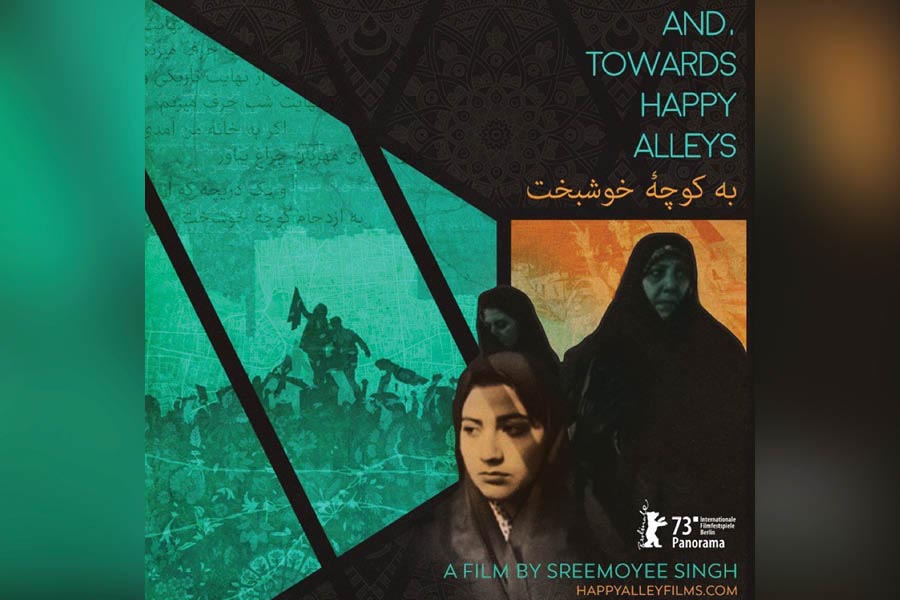On the cusp of its third decade, the Kolkata International Film Festival (KIFF) held on December 5-12, 2023 returned bigger than ever with over 200 films across 22 programmes shown on 23 screens around the state cultural capital and talks, masterclasses and exhibits.
From the festive opening night at the Netaji Indoor Stadium through the daily packed screenings to the emotional closing ceremony at Nandan, the droves of people — the culturati along with movie fans — enthralled by the diverse selection of world cinema were a sight to behold.
KIFF’s deep appreciation of regional formations in cinema interests me. Apart from the International Competition, the festival promoted documentary and short forms on a national scale, Indian filmmaking in various languages, and the proud tradition of Bengali cinema.
Many faces of Asia
Even the Asia Select, awarded by the Network for the Promotion of Asian Cinema (NETPAC), whose jury I chaired, featured seven films that projected a richer imagination of Asian cinema, a region all too often represented by East Asian films.
From Central Asia came Kyrgyzstani Asel Zhuraeva’s God’s Gift; from South Asia, Bangladeshi Syeda Neegar Banu’s Barren Waters, Indian Pranab Aich’s Nanda School of Tradition, and Nepalese Rajan Kathet and Sunir Pandey’s No Winter Holidays; from Southeast Asia, Filipino Joel Lamangan’s Walker and the Burmese collective Ninefold Mosaic’s Broken Dreams: Stories from the Myanmar Coup; and from West Asia, And, Towards Happy Alleys, a documentary about repression in Iran, by Indian filmmaker Sreemoyee Singh.
Exploring forms and places
Each of these films drew from formal traditions and explored them anew. They opened windows for their viewers to witness remote, marginalised and hidden places.
God’s Gift derives its power from the folktale structure, reflecting on a society’s capitalist present, soviet past, and still deeper Kyrgyz cultural memory in a deceptively simple tale of an old couple finding a baby on their doorstep.
Barren Waters and Walker, both multi-character narratives centred on vulnerable women, turn to the long-popular episodic melodramas of Bangladesh and the Philippines, respectively, to depict harsh social realities and women’s plight.
In Walker, it is police brutality and corruption that poor women must suffer. In Barren Waters, it is a restrictive culture in a disenfranchised community, prejudiced against migrants, transwomen and the displaced.
The discipline of the documentary
Three works illustrate the versatility and intensity of the documentary.
Nanda School of Tradition combines creative reenactment and daily observation in examining the exemplar and exceptional life story of a guru.
For No Winter Holidays, the filmmakers braved deathly winters in the Himalayas to portray a village’s customs and two women’s inner lives in affective, figurative and ethnographic ways.
In And, Towards Happy Alleys, a young woman follows the trail of Iranian artists for years, learning their language and songs, leading to personal discovery and lending her voice to a people’s cause.
Urgent calls for freedom and justice
Broken Dreams captures these many sentiments and the current travails of different Asian societies and peoples today. Composed of nine short films — some non-narrative experiments, others documentary-like, and still others straightforward stories — this omnibus is directed by eight political exiles fleeing the iron-hand rule of the military in Myanmar.
With screenwriter Ilgar Guliyev from Azerbaijan and filmmaker Modhurima Sinha from India joining me to complete the jury, we awarded the prize to Broken Dreams and gave the following citation:
‘For its daring narratives and poetic visual language, weaving together multiple perspectives of protest against oppression and hope against all odds, produced collectively by freedom-fighting artists in exile despite limitations, restrictions, and threats, using the unique platform of film for social justice, the Asian Select Prize is given by the NETPAC jury in solidarity with Ninefold Mosaic to the omnibus Broken Dreams: Stories from the Myanmar Coup.’
(Patrick F. Campos is a film critic, programmer and associate professor at the University of the Philippines. He is a member of NETPAC and FIPRESCI)










